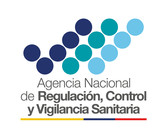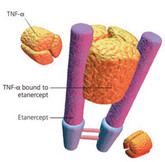Biosimilars
FDA approves adalimumab and insulin glargine biosimilars Yusimry and Rezvoglar
The US Food and Drug Administration (FDA) has approved the adalimumab biosimilar Yusimry (adalimumab-aqvh) and the insulin glargine biosimilar Rezvoglar (insulin glargine-aglr) [1].
Differences in immunogenicity, pharmacovigilance and legal documents in biological products in Latin America
A study published in 2021 and carried out by Ramírez-Telles et al. examined the immunogenicity, pharmacovigilance and legal documentation of biological and biotechnological drugs as aspects required in the regulations for the registration of these products. This study was conducted in nine Latin American countries – Brazil, Chile, Costa Rica, Cuba, Dominican Republic, El Salvador, Guatemala, Honduras and Panama – that currently have a regulatory framework for their registration [1].
Biosimilars approved in Ecuador
In Ecuador, the regulatory body for the approval of biologicals is the National Agency for Regulation, Control and Health Surveillance (ARCSA).
Biological standardization of bevacizumab: impact on global harmonization of potency assessment
Bevacizumab is a humanized monoclonal antibody (mAb) targeting vascular endothelial growth factor (VEGF), which causes excessive growth of new blood vessels from pre-existing ones in the form of angiogenesis, underlying pathology of cancers and intraocular neovascular diseases. Through binding to soluble VEGF, bevacizumab sterically blocks the interaction of VEGF with VEGF receptor 2 on endothelial cells and thereby interrupts the activation of downstream signalling for angiogenesis. Bevacizumab is indicated for the treatment of a range of cancers, including metastatic colorectal cancer, metastatic breast cancer and non-small-cell lung cancer. It is also used for off-label treatment of eye diseases including neovascular age-related macular degeneration and diabetic macular oedema.
Canada approves adalimumab biosimilars Simlandi and Yuflyma
Canada’s drug regulator, Health Canada, has approved the adalimumab biosimilars Simlandi (AVT02) and Yuflyma (CT-P17).
Biosimilars applications under review by EMA – January 2022
The European Medicines Agency (EMA) is the body responsible for approval of biosimilars within the European Union (EU). A legal framework for approving biosimilars was established in 2003. Approval of biosimilars is based on an abbreviated registration process, which allows biosimilars manufacturers to provide a reduced package of information compared to originator drugs, provided they can prove ‘similarity’ to the originator or reference drug.
Real-world data cannot replace post-approval confirmatory trials
A study published in JAMA Network Open [1] finds that real-world data are not sufficient to confirm the benefits of drugs approved by the US Food and Drug Administration’s (FDA) accelerated approval programme, and therefore cannot replace post-approval confirmatory trials.
Etanercept biosimilars delayed until 2029 in US
Yet another patent challenge to Amgen’s originator etanercept, Enbrel, has been denied in the US.
Differences in clinical studies and pharmacovigilance of biological drugs in Latin America
Clinical studies are trials conducted in humans to test the efficacy of new drugs, devices, and other forms of treatment, as well as those already approved. On the other hand, preclinical or non-clinical studies are in vitro or in vivo studies, carried out on animals, which are necessary to evaluate the toxicity of the product and prove drug safety.
Biosimilars approved in Brazil
In Brazil, the regulatory body for the approval of biologicals is the Brazilian Health Regulatory Agency (Agência Nacional de Vigilância Sanitária, ANVISA), which is linked to the Ministry of Health, part of the Brazilian National Health System (SUS) as the coordinator of the Brazilian Health Regulatory System (SNVS), present throughout the national territory.













